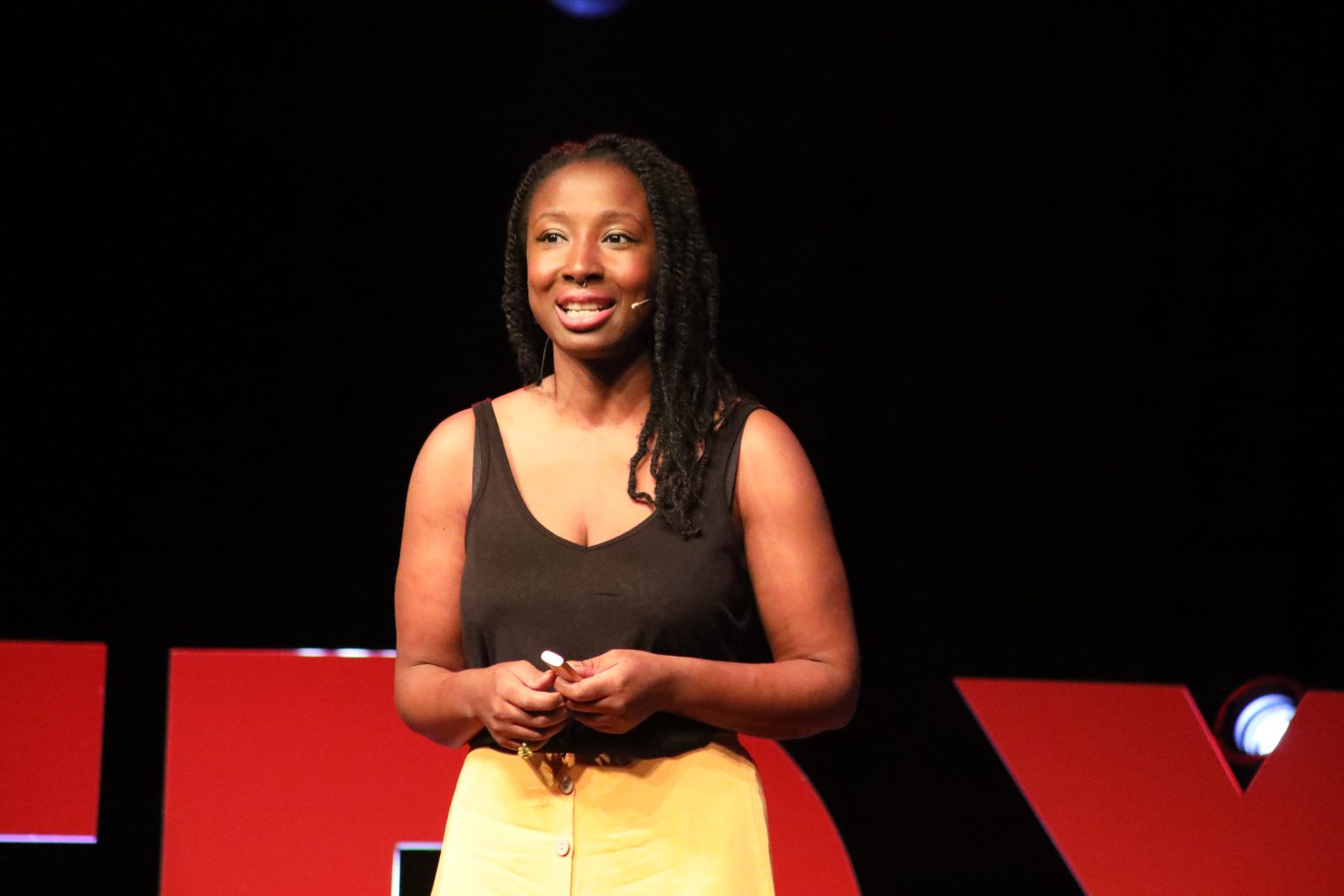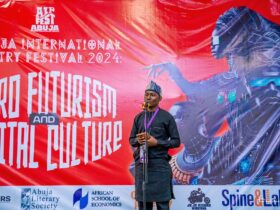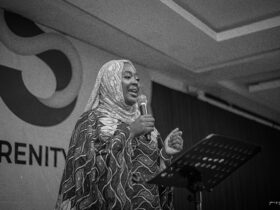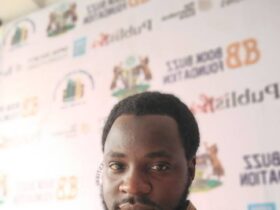Konya Shamsrumi: What is the process of writing a poem like for you? Is it a lot of hard work or easy?
Tanya Akrofi: I have three ways of writing poetry. Each of the methods grew organically of their own accord and each process is wholly satisfying in its way of drawing the poem from that magically, ethereal place called inspiration as the others. But of course, they each produce a very different type of poem.
The poem which comes fully formed
The writer, Elizabeth Gilbert, tells a story about meeting the poet Ruth Stone. Ruth tells her that sometimes a poem comes thundering towards her, so strong that she can feel the earth shake. At this sign, she runs quickly to find a piece of paper and a pen and as the poem courses through her, she writes it down as quick as she can. I recognise this. Sometimes in the midst of a moment which is so alive and exhilarating, words rise in me; in my stomach, my brain, I don’t know where. But if I am lucky enough to be near a dictaphone or some paper, I let the words spill out, in free form and at the end, like a gardener, my only job is to cut away the excess words and voila—a fully formed poem! This is how the poems So Hum (about my son’s love of singing) and Little (about the joy of small talk) came into being. I feel more like the scribe of these poems than the writer—taking instruction from some unknown voice.
The found poem
When I’m feeling a little stuck, unable to find any fresh images or metaphors, I turn to the found poem. My method involves finding a book (usually prose, but all forms work) that I have enjoyed reading. I pick a word or a phrase from the blurb and use it as a title. Then I flick through the book, with my pen at the ready, notebook on my lap and without stopping to think too hard, I pluck sentences and phrases and write them down. I then edit the jumble of disjointed words and metaphors into a form which fits the title. These poems are usually very abstract, but almost all the time the final poem evokes something deep within me. It moves some furniture about in my psyche and this is always like a revelation. Recently, most of my poems have been written this way. I like the surprise I get with the finished poem.
The intentional poem
I think this is the standard way of writing for many of us poets. Something – a moment, a feeling, a person – touches me and I know that the only way to truly express the depth of this feeling is through a poem. So, I sit down, make notes about the textures of your feeling, compare them to something in nature, extend them, find a new way to describe them and then write it down. Then comes the first edit, then the read aloud with another edit. Then I walk away, turning the words over and over in your mind, trying them out in my mouth, then come back and do a final edit. This was the first method I used as a girl. It’s my default method for writing poetry.
Konya Shamsrumi: Please describe your sense of identity in this or any possible world in imagery or metaphor?
Tanya Akrofi: There is a particular image which comes to me in my dreams, in my free writing, in my mediation: The little girl who sits on the back of a large wolf. She is holding a bright lamp. The wolf is walking into the darkest part of a forbidden forest and although the girl is afraid, she is also excited to bring some light into the places she has been so frightened to explore. Sometimes I am the little girl, afraid and small. Sometimes I am the wolf – fearless and ready.
Konya Shamsrumi: If any of your poems could literally save a person’s life, which poem would it be and can you describe the person whose life you think it would have saved?
Tanya Akrofi: The last line of my poem Little is “it saved my life again today” and I think this poem (commissioned as part of an event to raise money for local mental health charities) could do this. In the poem, I recount the story of striking up a conversation with a stranger on the bus, on a day where I was struggling to find reasons to stay alive. This simple momentary connection with a woman I didn’t know gave me the reason I was looking for and, in the poem, I want to celebrate the power of little conversations and cherish all tiny moments of connection – especially in this year where our loved ones feel so far away.

Konya Shamsrumi: What does Africa mean to you, as potential or reality?
Tanya Akrofi: “For Africa to me… is more than a glamorous fact. It is a historical truth. No man can know where he is going unless he knows exactly where he has been and exactly how he arrived at his present place.”― Maya Angelou.
This quote sums up my feelings exactly. There is so much about my beloved Ghana and Africa as a whole, which has been lost or silenced, through the brutality of colonialism. But more and more, I see Africans, both at home and in the diaspora, reclaiming their sense of pride and awe in a heritage that is so rich and always full of surprises. I am not naive to the pains and problems of the continent but I see the uncrushable spirit that oozes from the earth and the waters, I see how it joins us all to its destiny and when I think of Africa, I am filled with pride. To me, Africa IS the future.
Konya Shamsrumi: Could you share with us one poem you’ve been most impressed or fascinated by? Tell us why and share your favorite lines from it.
Tanya Akrofi: I love love love the poems of Mary Oliver. Like me, she has spoken about her love for the poetry of Rumi. You can see it in her use of simple yet effective imagery and her clear descriptions of love. Her poem Wild Geese is one that I often share, write into cards and letters and even recorded myself reading to send to my mum when she was having a difficult day. The first line is always a balm: “you do not have to be good”. As soon as I read this, my shoulders relax. my breathing becomes slower and the desperate little squirrel of busyness which is endlessly running around stops for a moment. Oliver does that thing that only poems can do: she attached the deep longing and need for connection and permission – which sums up the difficulty of being human – to the wild and untamed beauty of nature.
“Tell me about despair, yours , and I will tell you mine”; this invitation to sit with her, to listen and be listened to. To console and be consoled. This is where she extends her arms out of the page and holds me. This is where she sees that I am struggling.
As an antidote to loss and loneliness, Oliver offers the community of nature; of animals and landscape, of sea and sky. She reminds us that we belong, no matter how undeserving of that we erroneously think ourselves to be.
Whoever you are, no matter how lonely, the world offers itself to your imagination, calls to you like the wild geese, harsh and exciting - over and over announcing your place in the family of things.
The nugget that I take from this poem and carry with me, taking out and examining whenever I don’t know which way to turn, is the line in the centre of the poem “you only have to let the soft animal of your body, love what it loves”. This pulls me back to the guiding principle of my life, which is to “follow my bliss”, to let the joy of what I love be the light by which I am led.
Tanya Akrofi is a writer and oral storyteller from Ghana. She originally trained as a Family and Immigration lawyer, but followed her bliss, leaving to pursue her love of stories. Her TEDx talk “The Heroic Elixir of Storytelling” details how storytelling saved her life. She lives in Lincoln, England, where she is the director of the social enterprise—Creative Rebel, the recipient of the St Hughs Artist Development award and recently graduated with a Masters in Creative Writing from Lincoln University. She is currently in the midst of creating a storytelling festival in the Lincolnshire town of Brigg.
- Poets Talk: 5 Questions with Kayeon Onyeka - February 25, 2025
- Poets Talk: 5 Questions with Jakky Bankong-Obi - December 3, 2024
- Poets Talk: 5 Questions with Odu Ode - November 26, 2024













Leave a Reply